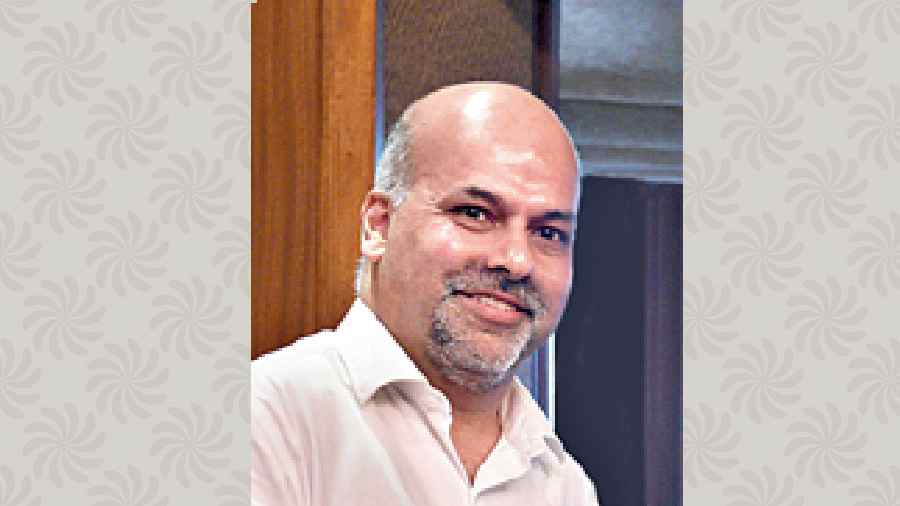For any mental health professional, managing our own emotions around violence inflicted on young people is a major learning goal. I have (rather late in the day) realised that outrage against perpetrators does not work. I have to remind myself of this hard and bitter truth frequently. The sheer number of young people who face emotional, physical and sexual violence is deeply dispiriting and one has to struggle to keep faith and not allow cynicism to take over. My outward reactions over the years have become muted, much like a battle-weary soldier, but internally it continues to grate.
Today I want to focus on emotional abuse and trauma. Just to cite a couple of examples from daily clinical encounters. A 47-year-old stepfather suddenly announces to her 14-year-old (step)daughter that he is leaving her and her mother after 12 years of marriage and living as a family. When the child pleaded him to stay and give her mother another chance, he said that the child should not feel upset as she was “never his daughter”. “Never his daughter?” After 12 years of parenting a child whose mother he legally married?
How would you engage in a conversation with a 17-year-old before her medical entrance exams, where the mother has constantly been reminding her that it would be shameful for the entire family if she does not crack it? Her entire self-worth is tied up to the outcome of one single exam. In this situation, nurturing was transactional, and parents spared no chance to remind her of the ‘sacrifices’ the family has made to pay her tuitions. How do you restore hope and her faith in adults around them? Her world view will be shaped without knowing that there is a concept called unconditional acceptance, where nurturing by parents is not dependent on marks or performance. The scars of emotional abuse can and does scar people for lives.
In life, what we do often does not ‘disappear’
What do you tell parents under these circumstances? It is a classic catch-22 situation. The parents come to us with a “problem” child. They are paying for my service, which is to “sort out” the child. If I brusquely tell them that the problem lies not with the child but with them, they will vanish, and I will never see them again.
I might feel relieved as I have taken the load off my chest and spoken the truth (as per my world views) but in reality, I have caused the child more harm. They will be further offended with my sermons and the cycle of blaming and abusing the child will continue. It is a tightrope walk. The only difference is if I fail, the young person gets hurt, not me. Hence, it is a difficult burden to carry.
Why do adults cause young people harm through emotional abuse? It is probably worthy of many PhD thesis. Most parents mean well (I have chosen my words very carefully here), but many do not know and cannot fathom the devastating harm their words, actions and at times non-actions can have on their children.
In majority of relationships, where there is authority (like a parent-child relationship), there is a potential for lack of respect. If I can be forgiven for drawing broad generalisations, I can state that doctors do not respect patients, teachers do not respect students, ministers do not respect their IAS officers, and so on and so forth.
The essence of the point I am trying to make is that we do not respect children and young people. The template of our relationship with children is based on obedience, instructions and expectations. Add to it the impatience of our current environment. We want gourmet foods delivered in less than 10 minutes, we want faster and faster download speeds, we want to express our profoundest wisdom in 288 characters, and we send messages that can “disappear”.
In life, what we do often does not “disappear”. Now, everything is ephemeral, or it can be stored “in Clouds” if we want to access them later. However, sins of our parents are not ephemeral. They cannot be deleted, they cannot be put away in “Clouds”. They continue to haunt as ghosts in the crevices of our mind long after they were unleashed.
Reality of the child’s mind
We, adults/parents, do not have time to think and imagine what it is for the young person to feel small, helpless and humiliated. We often lack empathy in understanding what the young person is going through. My teacher, friend, philosopher and guide, Professor Sekhar Seshadri, former head of the department at Child and Adolescent Psychiatry at NIMHANS, Bangalore, emphasises the point that lack of empathy is actually nothing but a lack of imagination. We cannot imagine the reality of the child’s mind.
So, what are the possible solutions? Deep introspection to begin with. I am a great advocate for practising silence and if I am allowed to take liberties, for enduring boredom. If we allow ourselves to be bored, our minds will wander, and it will take us to places we have not been for a while. For us to imagine the experiential reality of a child’s life, we must allow ourselves time to imagine. It is probably impossible if we stay hyperconnected to the world through phone calls, emails, WhatsApp, Twitter, Facebook, Snapchat, Tinder and so on. This phenomena of being hyperconnected with everyone has led to a lack of intimacy with those who are nearest to us.
My single piece of advice to parents/ teachers/ politicians/ bureaucrats and everyone who has any business with children is to reconnect with the most painful memory of your childhood. Remember how you felt. Do not be an instrument to make another child ever to feel like that.
After we are born and start growing up, interactions with adults around us shape our world views, our self-image and our trust in relationships.
Imagine a situation where the feedback you receive from most important people in your lives (your parents and immediate family) have been mostly negative. Hurtful comments, denigrating comparisons, emotional neglect, emotionally unavailable parents are some of the many ways which start corroding the psyche of the child.
What a child receives in terms of emotional nurturance is what they will be able to give back in future. You cannot expect a child to be warm, affable and kind, if the child has no experience of growing up in a world where none was received.
To come back to the point of all this feeling like a dispiriting battle. After almost 30 years in the battle, I, like many others of my fellow professionals, have not given up. It is because parents do change and make amends. It is because children and young people show remarkable resilience and grow up to be kind sensitive individuals. It is because one really can never give up. For the countless children who are continuing to suffer in silence from emotional abuse, let us just pause and try to reconnect.

Dr Jai Ranjan Ram is a senior consultant psychiatrist and co-founder of Mental Health Foundation (www.mhfkolkata.com). Find him on Facebook @Jai R Ram
